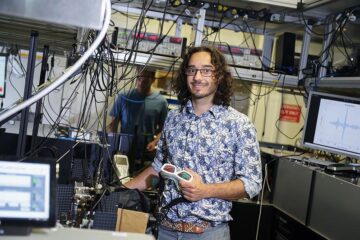Descartes Prize 2002 – Call for proposals – Deadline : 15 March 2002

Call for major scientific achievements to be awarded by the 2002 EU Descartes Prize up to EUR 1,000,000
On Saturday 15 December 2001, the call for entries to the next EU Descartes Prize was launched. This call opens the race for next year`s top EU science prize, which will close with a deadline on 15 March 2002. The Descartes Prize is open to teams of scientists who have achieved outstanding results from their European collaborative project. Entries may be submitted from any field of scientific endeavour, including the socio-economic sciences, and are not limited to EU-funded projects. Research collaborations involving teams from outside the EU are also eligible.
Launched in 2000, the 2002 prize will be the third Descartes Prize. The second Descartes Prize was awarded on 27 November to two projects one on AIDS, lead from the K.U. Leuven (BE) and the other on chemical catalysis lead from Kings College (UK).
The Descartes Prize represents an important opportunity for European researchers to gain the public acclaim they deserve for their groundbreaking results. At the same time the Descartes is one of a number of activities supported with a view to raising public awareness of science and its importance in daily life, as described in DG Research`s new action plan on Science and Society. Following the deadline on 15 March 2002, prize entries will be subject to a two step evaluation concluded by a Grand Jury of eminent figures from academia end the public and private sectors.
The Descartes Prize is a part of the Research Directorate General’s Improving the Human Research Potential Programme (1998-2002)
Media Contact
Weitere Informationen:
http://www.cordis.lu/descartesAlle Nachrichten aus der Kategorie: Veranstaltungsnachrichten
Neueste Beiträge

Neue universelle lichtbasierte Technik zur Kontrolle der Talpolarisation
Ein internationales Forscherteam berichtet in Nature über eine neue Methode, mit der zum ersten Mal die Talpolarisation in zentrosymmetrischen Bulk-Materialien auf eine nicht materialspezifische Weise erreicht wird. Diese „universelle Technik“…

Tumorzellen hebeln das Immunsystem früh aus
Neu entdeckter Mechanismus könnte Krebs-Immuntherapien deutlich verbessern. Tumore verhindern aktiv, dass sich Immunantworten durch sogenannte zytotoxische T-Zellen bilden, die den Krebs bekämpfen könnten. Wie das genau geschieht, beschreiben jetzt erstmals…

Immunzellen in den Startlöchern: „Allzeit bereit“ ist harte Arbeit
Wenn Krankheitserreger in den Körper eindringen, muss das Immunsystem sofort reagieren und eine Infektion verhindern oder eindämmen. Doch wie halten sich unsere Abwehrzellen bereit, wenn kein Angreifer in Sicht ist?…





















